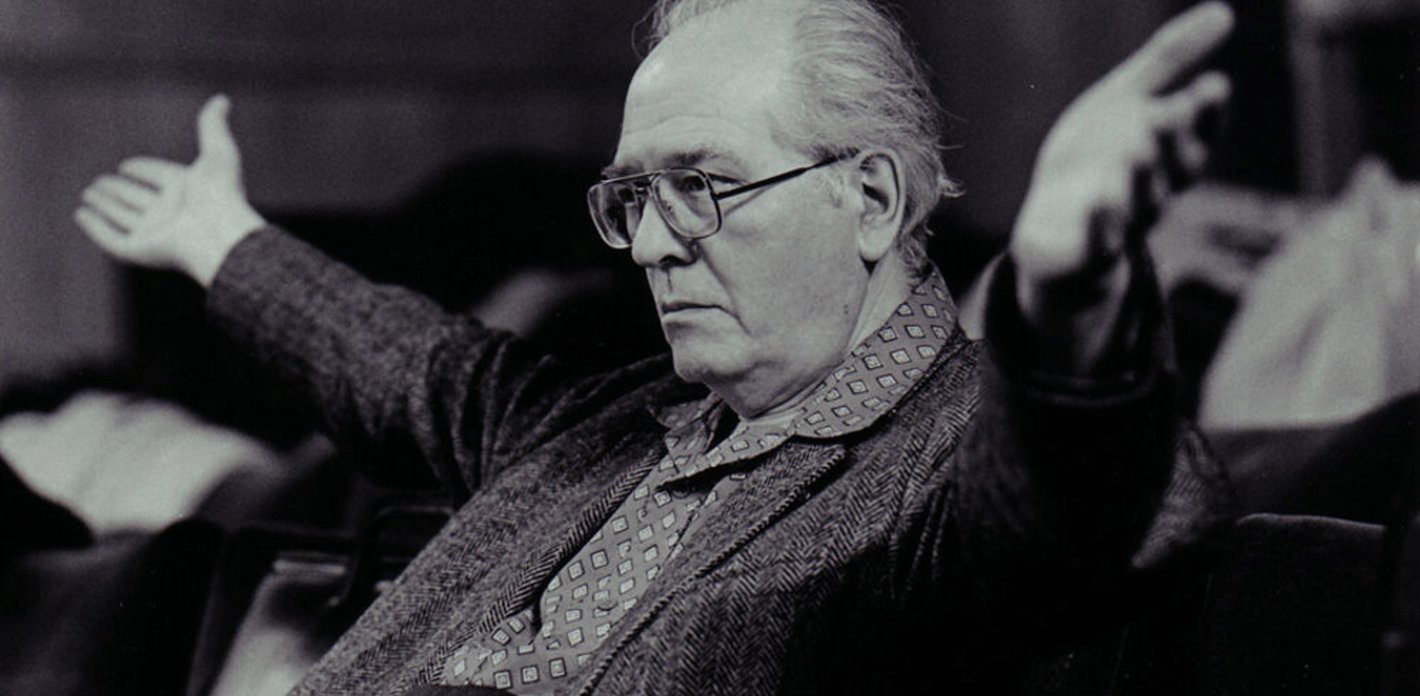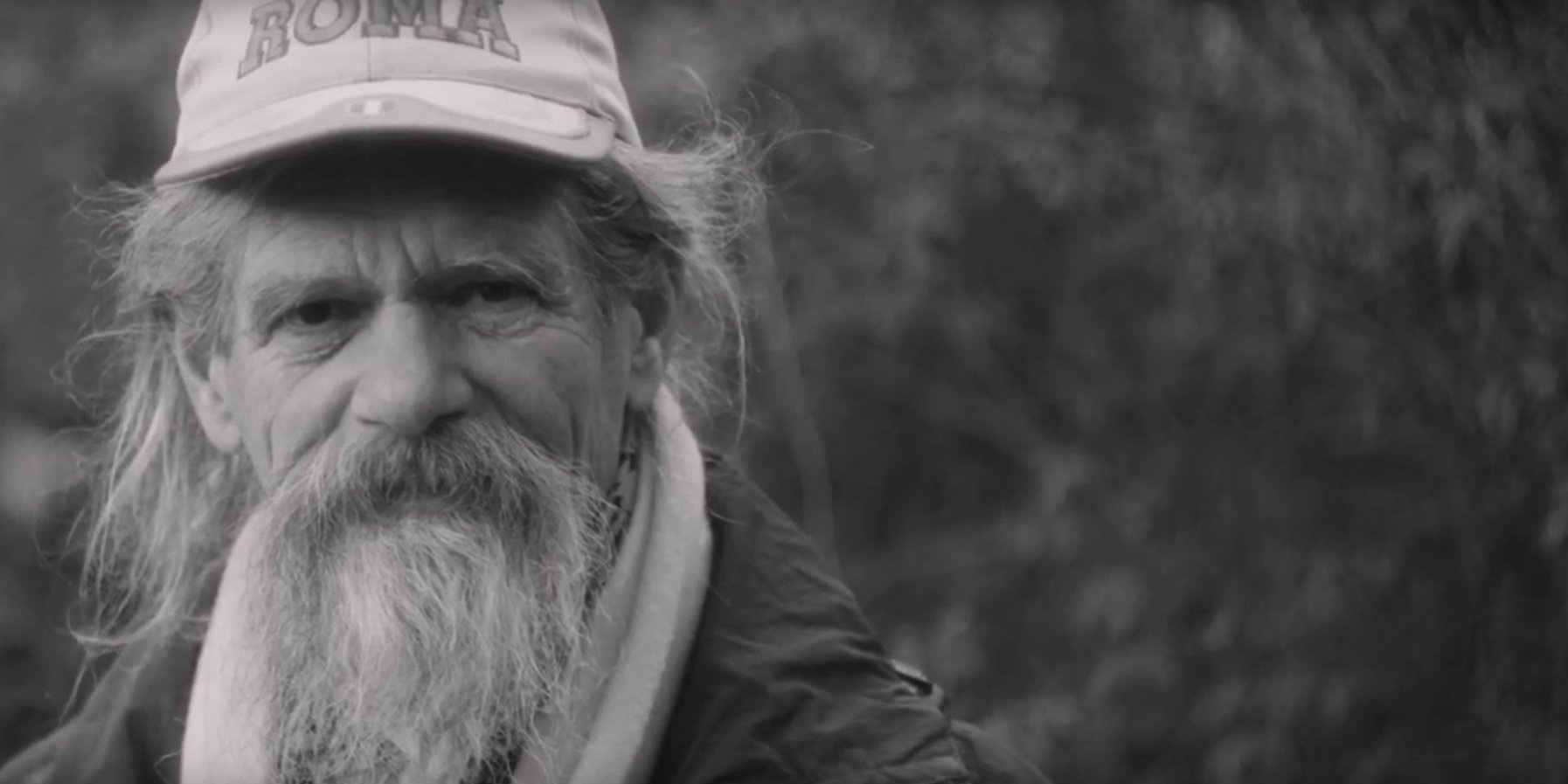The world-famous composer Messiaen was a pious and modest man, free of arrogance and airs and graces, and he would particularly have liked the fact that the Jesuit Jorge Mario Bergoglio chose the name Francis after his election as Pope in 2013. In modern parlance, St. Francis would have to be called a disruptive figure in medieval history, and he was the most important person on Messiaen's imagined altar. Like St. Francis, who preached to them, Messiaen too was fond of birds. Wherever he went, he noted down the song of different species of bird, and made their persistent heavenly music an integral part of his own compositions.
Messiaen was a faithful servant of the Church for nearly all his life, accompanying Sunday Mass in the rather plain church of La Trinité in Paris with his organ improvisations for 60 years, until his death in 1992. After lengthy labour pains, he crowned his exceptionally coherent oeuvre in 1983 with his sole opera, raising an iridescent musical monument to the mystic and friar from Umbria who rebelled against the Church: »Saint François d’Assise«.
Trailer: »Saint François d'Assise« in der Elbphilharmonie (Juni 2024)
Nagano at the Messiaens'
After the first performance of this four-and-a-half-hour mystery play at the Elbphilharmonie in 2020 was cancelled due to Corona-related restrictions, it now is a special highlight at the International Music Festival Hamburg 2024. The performance is conducted by Kent Nagano, director of music of the Hamburg Philharmonic State Orchestra since 2015 and one of the world's leading Messiaen experts. In 2011, Nagano rescued »Saint François« from Hermann Nitsch's blood-drenched production during his tenure at the Bavarian State Opera, musically at any rate. Prior to that, in Salzburg in 1998 he conducted the revival of the remarkable 1992 production staged by American theatre director Peter Sellars, and he also took the rostrum for several other performances in concert or semi-concert versions of the »Franciscan Scenes in Three Acts and Eight Scenes«.
Most important of all,however, is the fact that Nagano moved in with Messiaen and his wife Yvonne Loriod in 1983 and spent nearly a year living with them, to help prepare the premiere of »Saint François« at the Opéra de Paris in Palais Garnier.When Nagano came to Paris in the winter of 1982/83 at Messiaen's invitation, he was 31 years old and was travelling outside the USA for the first time in his life. He was bewildered and delighted in equal measure by the strange language and by the vibrant scene in the red-light and entertainment district Pigalle where Messiaen lived. But first and foremost he found himself carried away by European culture, which he had been longing to experience since his childhood in the small Californian town of Morro Bay. Living in the Messiaen household, he was subject to constant input in this respect.

»Messiaen captivated me«
Nagano first came into contact with Messiaen's music as a young conductor and student of composition. Fascinating as he found it, though, it remained a mystery to him. While he was working as an assistant conductor, he came across the music for Messiaen's »Catalogue d'oiseaux«, a collection of composed birdsong, and worked his way ever deeper into the complex musical language. »I was suddenly seized by the wish to understand Messiaen at all costs,« Nagano writes in his book »Erwarten Sie Wunder!« (Expect the Unexpected). He goes on: »I wanted to get to the bottom of his musical language. Without my realising it, Messiaen had captivated me with his individual rhythms and his perfect polyphony.«
The beginning of a wonderful friendship
As music director of the Berkeley Symphony Orchestra, Nagano had the idea in 1978 of performing Messiaen's best-known works as a cycle. Despite his detailed analyses of the music, he had no idea what the music was really supposed to sound like, so he sent the composer a radio recording of one of the concerts. And Messiaen wrote back from Paris – with detailed performing instructions. This was the beginning of a wonderful friendship. When Nagano put »La Transfiguration de Notre Seigneur Jésus-Christ« on the programme in Berkeley that year, Messiaen accompanied his wife Yvonne Loriod to attend the performance, where she was playing the piano part.

One single opera
At the time, Messiaen was already grappling with an opera that Rolf Liebermann, then artistic director of the Paris Opera, had commissioned him to write in 1977. Messiaen was a passionate church musician, an ornithologist and an exceptionally competent composition teacher, counting Pierre Boulez, Karlheinz Stockhausen, Iannis Xenakis and George Benjamin among his pupils; but the world of opera was alien to him.
What's more, the history of the genre weighed heavily on him. Nagano recalls: »He thought about the Verismo school, about Mozart and Berlioz. He explored the immense weight and diversity of centuries of opera, with ›Wozzeck‹ and ›Fidelio‹ among the many works he studied. He searched for eight years without finding anything about opera to attract him. In the end he decided to rethink opera by creating his own individual cosmos instead of adapting to opera's traditional form.«
More than just a biography
Messiaen wrote the libretto himself, basing it on an early biography of St. Francis and on the »Fioretti«, an edifying 14th century compendium of legends about him. And the result was anything but a biopic for the opera stage: »I love having the freedom that I don't have to stage an account of St. Francis's life,« admitted Peter Sellars, who made his debut at the Salzburg Festival in 1992, when he put on his version »Saint François« in the Felsenreitschule. »How marvellous that Messiaen is not pursuing any documentary interest in this opera! What interests him is the meaning of St. Francis's life, for Francis himself and for us. That's much more important than whether a particular tree looks like it did back then, or whether a certain bird was the one that Francis heard. Of course it wasn't! You can assume that the robin that Francis heard sounded completely different from Messiaen's orchestra.«

The score calls for some 120 musicians, three ondes Martenot, a large choir and – with the exception of the Angel – only male soloists on stage. Messiaen allegedly omitted the figure of St. Clare because he feared the love duet that would then be inevitable. – St. Clare was Francis's companion for a while, who followed his example in renouncing her noble origins, and was inspired by him to found the Order of Poor Ladies, commonly known today as the Poor Clares. Messiaen compensates for Clare's absence by giving the Angel, sung by a soprano, celestial passages, often sung in a pretty high register.
Messiaen's work is one of a kind in the operatic repertoire. Nagano prefers to use the German word »Spektakel«, but this is misleading: it makes one think of something sensationalistic. The French word »spectacle« refers simply to a play, an event or a series of events that people can watch. Nagano explains: »The spectacle at the time of Berlioz for example, which is what Messiaen was thinking of too, was not really an oratorio nor an opera, it wasn't really orchestral, but just – a spectacle. In this work the composer uses his static block elements, often derived from birdsong, the wonderful radiant melodies and the typical timbres of his orchestration to bring the mystery of the spiritual sphere into the here and now.
When the Angel appears
As far as the production is concerned, »Messiaen's ideal was heavily influenced by the Giotto frescoes in Assisi,« says Nagano. »Medieval, flat, clear colours – this inspired him. When the Angel appears, he wanted to see Giotto's colours in its wings. It's not so easy for a contemporary director to put this into practice.« And it's true that every director is faced with the insoluble task of letting the unspeakable remain unsaid, while still showing it and endowing it with some kind of use for the audience. »If the spiritual truths remain mere metaphors,« says Sellars, »then we are doing injustice to the life of St. Francis. What was completely new for him was the idea that the life of Christ should not be understood metaphorically, but must be relived in our own bodies. Not as something that we know, but as something that we feel and live.«
Nagano has complete confidence that Hamburg State Opera director Georges Delnon, who is responsible for the staging of »Saint François d’Assise«, »has very interesting ideas for the production, as he approaches the French spectacle based on his own personal background«. He is expecting a stage version that does justice to Messiaen's aesthetic: »That has nothing to do with retrogressive or progressive thinking, it is simply about a particular aesthetic that calls for a particular sensitivity. In this piece there must be space for spirituality; the contours mustn't be so hard that there is no more mystery. François himself also leaves space for psychological development. At the end of the story he is a different person from at the outset.«
Listening to Nagano we realise that since Yvonne Loriod died ten years ago, he has assumed the mantle of trustee of Olivier Messiaen's aesthetic: Messiaen, the man he refers to as his »cultural father« and whom he always addressed as »Maître« during their time together in Paris. He lived with the composer on an everyday basis, eating dinner with him in the kitchen – simple dishes prepared by Mme. Loriod. Nagano spent countless hours talking to Messiaen in his living room about music, philosophy and aesthetics. On one occasion, the professor spent four hours at the piano analysing »Parsifal« for him. And Loriod gave him daily piano lessons. Only once did in this intense and, for him, unforgettable year did Nagano overstep the boundaries of befitting conduct in the heat of a friendly moment, thoughtlessly addressing the Master in the familiar form, »tu«. »Yvonne Loriod intervened immediately with a sharp reproach: Vous!«
Text: Tom R. Schulz; last updated: April 2020
English translation: Clive Williams
This article appeared in the Elbphilharmonie Magazin (2/20)
- Elbphilharmonie Großer Saal
Messiaen: Saint François d’Assise
Hamburg Philharmonic State Ochestra / Kent Nagano – Hamburg International Music Festival
Past Concert - Elbphilharmonie Großer Saal
Messiaen: Saint François d’Assise
Hamburg Philharmonic State Ochestra / Kent Nagano – Hamburg International Music Festival
Past Concert - Elbphilharmonie Großer Saal
Messiaen: Saint François d’Assise
Hamburg Philharmonic State Ochestra / Kent Nagano – Hamburg International Music Festival
Past Concert










